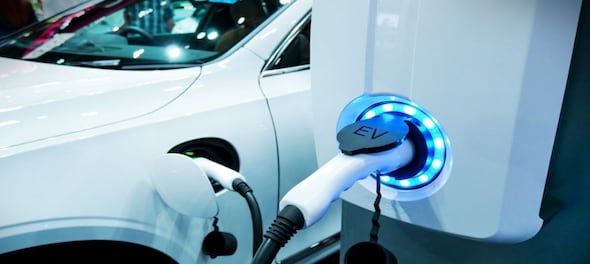
Electric vehicles (EV) have gained interest from buyers, but the pace of adoption could lower over the next three years due to expectations of elevated nickel, cobalt and lithium prices, according to CareEdge.
Though metal prices have corrected from their recent highs, increasing demand and uncertain geopolitical factors may lead to prices of EV batteries not falling at the pace previously envisaged. Lithium, cobalt and nickel are the three key raw materials required to manufacture cathodes.
The recent volatility in cobalt and nickel prices has been attributed to the ongoing Russia-Ukraine war.
CareEdge believes that increasing the lithium, cobalt and nickel mining capacity in the mentioned regions would take at least three years, and until then, battery prices could remain firm.
Alongside, semiconductor shortages are still not out of the woods, re-attributable to supply challenges expected to persist until the Russia-Ukraine war shows signs of cessation. In the interim, CNG/LPG vehicles in India may witness a rise in demand due to their lower cost of ownership and hence the cost savings it offers.
Alongside, setting up additional fuel stations in the country provide a fillip. From around 3,900 fuel stations for CNG set up across 236 cities in FY22, the number is expected to swell to 10,164 across 327 cities by FY26.
If the preference for CNG vehicles gains further pace in India, Maruti Suzuki and Hyundai could be the likely beneficiaries due to their large number of CNG vehicle offerings and established presence in this industry, says Sudarshan Shreenivas, Director-Corporate Ratings, CareEdge.
The shifting preference towards CNG vehicles also helps reduce India’s dependence on oil imports while lowering the higher electricity consumption due to EV charging. Further, using coal-fired power plants for EVs is detrimental to the environment instead of aiming toward a greener planet.
In the case of EVs, where support infrastructure in terms of charging stations will take a long time to ramp up, leading to continued ‘range anxiety’ among potential buyers, CNG/LPG vehicles are not expected to face many difficulties in terms of access to fuel.
Are prices of EVs comparable to that of an ICE vehicle?
In the case of two-wheelers, the price of EVs and ICE vehicles has begun to converge, with the lower-priced electric two-wheelers now available in the same price range as some of the higher-priced ICE scooters.
However, the price difference for passenger vehicles is still wide, with the cheapest passenger EV costing around Rs.14 lakhs (on-road) vis-à-vis 50 percent lower price for the ICE version of the same model, says CareEdge.
What can the Government incrementally do to support EV sales?
Government subsidies alone may not be sufficient to support EV car sales, while for two-wheelers, the sales momentum is likely to sustain even without subsidies.
Since the cheapest EV car today costs almost double a comparable ICE version, subsidies under FAME or government initiatives such as waiver of registration charges may not be adequate to bridge the substantial price gap, says Sudarshan Shreenivas, Director-Corporate Ratings, CareEdge.
India, being a price-sensitive nation with lower discretionary and per capita income, a reduction in vehicle prices alone can lead to the mass adoption of electric cars.
This price reduction could be achieved in two ways, a reduction in battery prices as global mining capacities ramp up and geo-political constraints ease. The other way is through the long-awaited government policy on battery swapping, which may lead to decoupling the cost of an EV from the battery.
A swapping policy which provides buyers with the option of renting a battery instead of buying the same along with the electric car seems to be the biggest factor that could lead to a sharp reduction in electric car prices.
The dual benefits of convenience of use and price reduction facilitated through a sound battery swapping policy would be the single largest factor driving sales of electric cars in India.
Check out our in-depth Market Coverage, Business News & get real-time Stock Market Updates on CNBC-TV18. Also, Watch our channels CNBC-TV18, CNBC Awaaz and CNBC Bajar Live on-the-go!


Andhra Pradesh Lok Sabha elections: A look at YSRCP candidates
Apr 25, 2024 6:54 PM
Lok Sabha elections 2024: Banks and schools to remain closed in these cities for phase 2 voting
Apr 25, 2024 5:33 PM
Andhra Pradesh Lok Sabha elections: Seats, schedule, NDA candidates and more
Apr 25, 2024 5:16 PM

